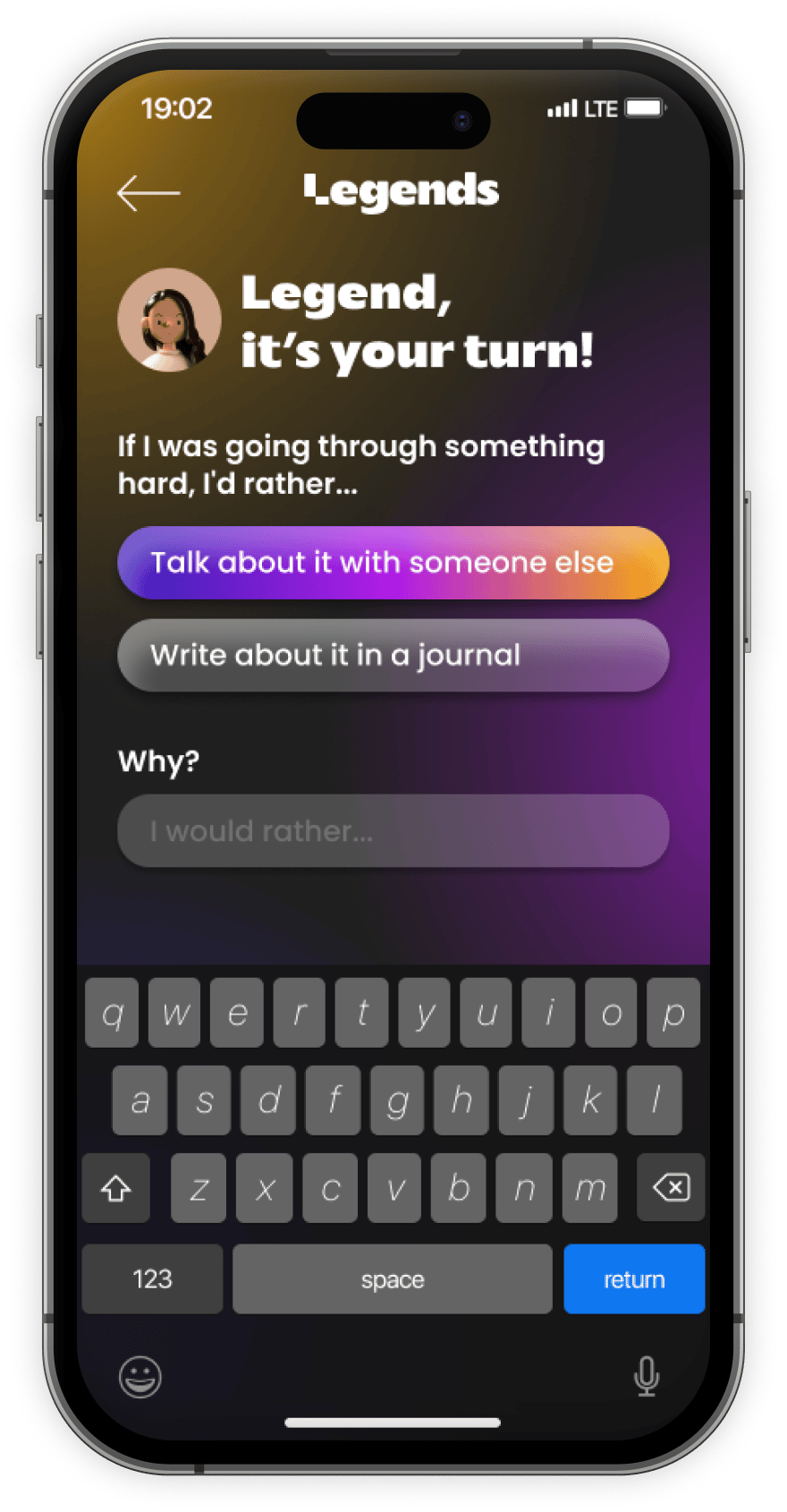
We get a lot of questions about how to help kids set goals, and with everyone setting their New Year’s Resolutions, this seems like a great time to talk about it.
Here’s our take: if we want kids’ goals to stick, we need to set goals in a way that works for their brains.
That means long-term visioning and multi-step processes are out. Short-term thinking and simple, actionable goals are in.
Check out this installment of The Legender:
My three research-based, non-boring ways to help kids create New Years’ Resolutions
Brian’s deeper dive into what the latest research says about goal-setting
Sue’s reflections on her own goals and why kids’ goals need to come from them
Legendary Links (below), including a great goal-setting tool from Legends advisor and legendary school principal Andy Smallman
Stay Legendary,
Fish Stark
Head of Program & Curriculum
Legends
PS: If your kid’s goal is to be more confident, Legends can help them practice every day. Our holiday deal is still active: use LEGENDER50 at checkout to get 50% off a Legends subscription! Learn more
🔗 Legendary Links
Andy Smallman’s Four Steps to Happiness & Purpose - Legendary teacher and school leader (+ Legends advisor and Legender reader!) Andy Smallman has a simple four-step process he uses to encourage his students to set and pursue goals, which can be applied to New Year’s Resolutions.
“Possible” podcast episode featuring Sarah Sze - a great podcast with a famous artist talking about AI, art, creativity and the illusion of the physical/digital divide
Signs You’re Raising a Confident Kid - from Legends Head of Content Marisa Polansky
Tennis legend Novak Djokovic on developing mental strength - from Legends Insider Toby D
Bill Gates’ thoughts on the year ahead - including how AI can improve access to high quality education - from Dean Sue
Help Your Kid Calm Their Mind 😌
Legends is a confidence-training app that builds legendary kids.
If you have a kid(s) age 7-11 and want to try our new app, you can use code LEGENDER50 at checkout to get 50% off a Legends subscription!
1️⃣ "What’s something new you want to do, and how are you going to do it for fifteen days in January?”
Why fifteen days? 🧪 Science.
There are lots of theories about how many days it takes to build a habit, but most of those theories come from a single study done with adults. Kids’ brains are more plastic, meaning it’s possible for them to form habits faster.

Researchers working on a child nutrition research project found that fifteen days (three school weeks) was enough repetition to build a lasting habit in kids. Encouragingly, the research found that the habits held even if kids missed a day (and of course they weren’t practicing on the weekends, either!). Other research supports this conclusion as well.
Fifteen days isn’t a magic number. Not all kids are created equal and not all habits are, either! But it is a good, research-based starting place.

📢
Join Legends Insiders
We’re building a thriving community of parents and experts. If you want to join, reply to this email and request an invite.
When I was 12, I announced that my goal was to become a doctor, specifically a surgeon or a psychiatrist, clearly a SMART goal. I adjusted this goal in college when I became more familiar with the concept of primary care and decided family medicine was for me.
When I didn’t get into medical school, I shifted to the WOOP strategy, going to graduate school with the intent of improving my grades. I ended up working as a manager of a family medicine residency clinic, with an “extended, renewed” goal of reapplying to medical school.

Fortunately, working in healthcare enabled me to realize that being a doctor was something I no longer wanted to do. I finally recognized that all the advice I had been given (but ignored) about abandoning my goal should have been heeded.
So, how do we encourage our children to set goals and perhaps let them go or adjust them when it’s clear they are not achievable and/or are no longer in their best interest?

Our confidence can be affected by whether we reach our goals, and it can influence the types of goals we set.
Contemporary research has also identified the specific benefits of setting and achieving realistic and meaningful goals. For example, people who believe they can energetically pursue their goals, and find ways to overcome obstacles on the way to reaching their goals, do well in academic and interpersonal contexts. They even have higher levels of physical and mental health (Oettingen & Gollwitzer, 2002).

I say meaningful goals because the pursuit of materialistic or extrinsic goals is linked to lower levels of well-being in adolescents (Massey et al., 2008). Additional research into academic achievement has also found evidence that children setting their own goals leads to higher self-efficacy and academic outcomes, compared to being assigned goals or having no goals.
What types of goals are best?


